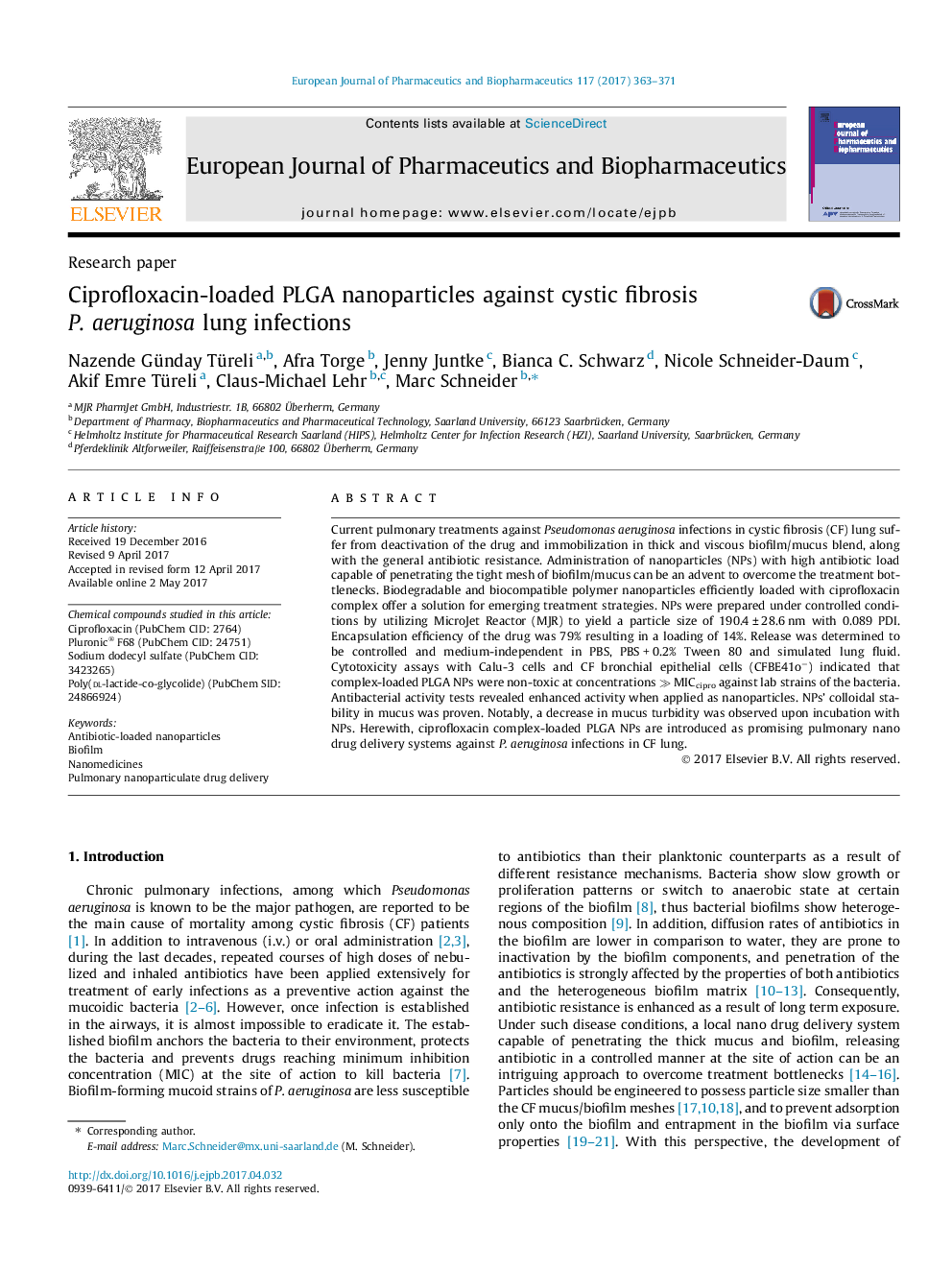| Article ID | Journal | Published Year | Pages | File Type |
|---|---|---|---|---|
| 5521526 | European Journal of Pharmaceutics and Biopharmaceutics | 2017 | 9 Pages |
Current pulmonary treatments against Pseudomonas aeruginosa infections in cystic fibrosis (CF) lung suffer from deactivation of the drug and immobilization in thick and viscous biofilm/mucus blend, along with the general antibiotic resistance. Administration of nanoparticles (NPs) with high antibiotic load capable of penetrating the tight mesh of biofilm/mucus can be an advent to overcome the treatment bottlenecks. Biodegradable and biocompatible polymer nanoparticles efficiently loaded with ciprofloxacin complex offer a solution for emerging treatment strategies. NPs were prepared under controlled conditions by utilizing MicroJet Reactor (MJR) to yield a particle size of 190.4 ± 28.6 nm with 0.089 PDI. Encapsulation efficiency of the drug was 79% resulting in a loading of 14%. Release was determined to be controlled and medium-independent in PBS, PBS + 0.2% Tween 80 and simulated lung fluid. Cytotoxicity assays with Calu-3 cells and CF bronchial epithelial cells (CFBE41oâ) indicated that complex-loaded PLGA NPs were non-toxic at concentrations â« MICcipro against lab strains of the bacteria. Antibacterial activity tests revealed enhanced activity when applied as nanoparticles. NPs' colloidal stability in mucus was proven. Notably, a decrease in mucus turbidity was observed upon incubation with NPs. Herewith, ciprofloxacin complex-loaded PLGA NPs are introduced as promising pulmonary nano drug delivery systems against P. aeruginosa infections in CF lung.
Graphical abstractDownload high-res image (129KB)Download full-size image
